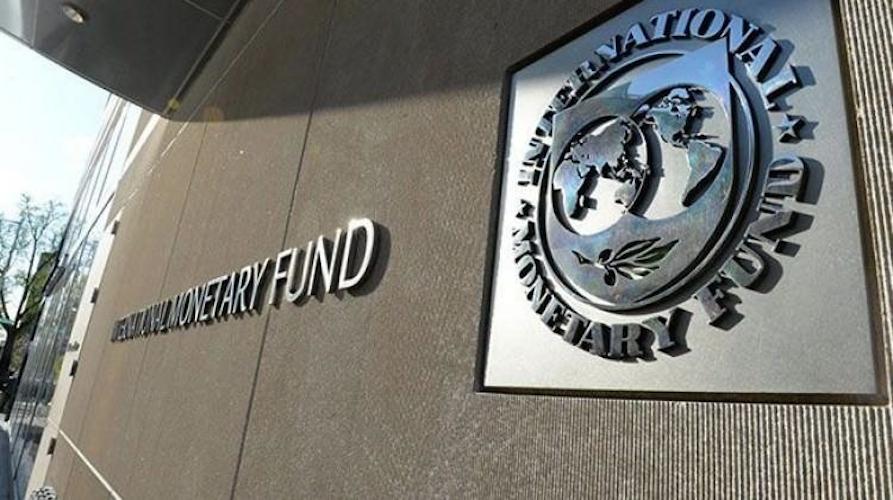IMF Advocates Tight Monetary, Fiscal Policies For Nigeria

By Ngozi Onyeakusi—The International Monetary Fund, on Tuesday, advised Nigeria to continue to tighten monetary and fiscal policies amid weakening oil prices and multiple global economic risks.
The IMF, in its World Economic Outlook released at the on-going joint annual spring meetings with the World Bank in Washington DC, also projected the country’s growth rate to reach 2.5 per cent in 2020 from the 2.1 per cent it projected for 2019.
The Division Chief, Research Department, IMF, Oya Celasun, in an interview with journalists shortly after the release of the WEO, said it was important for Nigeria to tighten fiscal policy while mobilising for more non-oil revenue.
The monetary policy, she said, needed to stay tightened for some more time but advised that doing so should be predicated on transparency and sound communication.
She said, “For Nigeria, what’s very important is the oil price. So, to the extent that other global risks transmit into a weaker oil price or there are other developments that are oil market specific, this would be a factor weighing on Nigeria.
“We expect a growth recovery; growth was reasonably strong last year and we think that things will improve a bit going forward. We cut our forecasts for 2019 precisely because oil prices are going to be a bit weaker than we expected last time we did the forecast.
“It’s time to be cautious because there are much of adjustments that need to be done; it’s a process. Fiscal policy needs to tighten further for which mobilising more non-oil revenue is very important. For monetary policy, it’s to stay tight for some more time. It has to be well communicated and transparent.
“There has been some convergence on the exchange rate front; there is also much more that needs to be done there and the structural reforms. All of these have to be put in a context of reforms that help boost private sector performance.”
Recall that the Monetary Policy Committee of the Central Bank of Nigeria had recently reduced the Monetary Policy Rate from 14 per cent to 13.5 per cent. The MPR had been held at 14 per cent since July 2016.
The CBN Governor, Mr Godwin Emefiele, who announced the new MPR, said, “The MPC decided by a vote of six out of 11 members to reduce the monetary policy rate by 50 basis point that is 0.5 per cent. Two members voted to reduce the monetary policy rate by 0.25 per cent, while one member voted to reduce it by one per cent. Two members, however, voted to hold MPR at its current level.
“In summary, the MPC voted to adjust the MPR by 50 basis point from 14 to 13.5 per cent, retain the asymmetric corridor of +200 and -500 basis point around the MPR, retain the CRR at 22.5 per cent and retain the liquidity ratio at 30 per cent.”
The CBN governor had said while the apex bank had held the rate at 14 per cent since July 2016; it felt that there was a need to have a refocus on monetary tightening. As such, the decision to reduce the rate was taken in the overall interest of the economy.
According to the IMF, the Nigerian economic growth rate is expected to reach 2.5 per cent in 2020 up from projected 2.1 per cent for 2019, amid multiple global challenges that contributed to the weakened global economy in the half-year of 2018.
In view of the global challenges elucidated in the WEO and expected to continue until the end of the second quarter of 2019, the IMF predicted slow growth in 70 per cent of the world’s economies.
It also said growth in the sub-Saharan African economies would pick up to 3.5 per cent in 2019 and 3.7 per cent in 2020, signifying a 0.3 percentage point and 0.2 percentage point lower for 2019 and 2020, respectively, than in the October 2018 WEO.
IMF’s Economic Counsellor and Director of the Research Department, Gita Gopinath, who presented the WEO report, said, “In sub-Saharan Africa, growth is expected to pick up to 3.5 per cent in 2019 and 3.7 per cent in 2020 (from 3.0 per cent in 2018).
“The projection is 0.3 percentage point and 0.2 percentage point lower for 2019 and 2020, respectively, than in the October 2018 WEO, reflecting downward revisions for Angola and Nigeria with the softening of oil prices.”
Predicting growth slowdown and precarious recovery for the global economy, Gopinath said, “One year ago, economic activity was accelerating in almost all regions of the world and the global economy was projected to grow at 3.9 per cent in 2018 and 2019. One year later, much has changed.”
She said the escalation of US–China trade tensions, macroeconomic stress in Argentina and Turkey, tighter credit policies in China, and financial tightening alongside the normalisation of monetary policy in the larger advanced economies contributed to a significantly weakened global expansion, especially in the second half of2018.
“With this weakness expected to persist into the first half of 2019, the World Economic Outlook projects a decline in growth in 2019 for 70 per cent of the global economy,” Gopinath added.
“The downward revision in the growth of 0.2 percentage points for 2019 from the January projection is also broad-based. It reflects negative revisions for several major economies including the euro area, Latin America, the United States, the United Kingdom, Canada, and Australia,” Gopinath said.
Despite growth slowdown, the IMF sees the world’s economies recovering in 2020, and returning to 3.6 per cent. The recovery, however, is seen as “precarious and predicated on a rebound in emerging market and developing economies where growth is projected to increase from 4.4 per cent in 2019 to 4.8 per cent in 2020.”
Additional materials from Punch






Leave a Reply